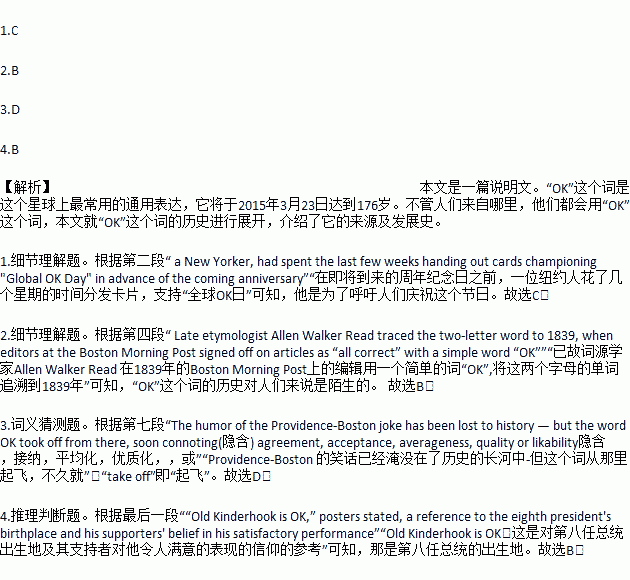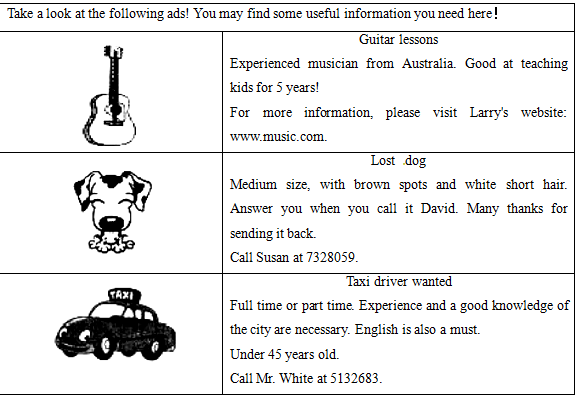题目内容
The word "OK" is the most frequently spoken all-purpose expression on the planet — and it's turning 176 years old on March 23, 2015. The term was born during a 19th-century abbreviation(缩写) craze and went on to international fame with its own hand gesture.
Last year, Henry Nass, a 64-year-old retired English teacher, a New Yorker, had spent the last few weeks handing out cards championing "Global OK Day" in advance of the coming anniversary.
"No matter where people are from they use the word 'OK,' but they don't know where it comes from," says Nass. "The problem is because it's just, you know, OK."
The word is OK, perhaps, but its history is definitely better than average. Late etymologist Allen Walker Read traced the two-letter word to 1839, when editors at the Boston Morning Post signed off on articles as “all correct” with a simple word “OK”.
The word made it into print on March 23 of that year, in an article against a rival editor in Providence who had stated wrongly that a band of Bostonians heading to New York would pass through the Rhode Island capital (Providence).
"We said not a word about our team passing 'through the city' of Providence," the Morning Post reported. "O.K. — all correct."
The humor of the Providence-Boston joke has been lost to history — but the word OK took off from there, soon connoting(隐含) agreement, acceptance, averageness, quality or likability.
By 1840, it served as a slogan for President Martin Van Buren's unsuccessful reelection campaign. “Old Kinderhook is OK,” posters stated, a reference to the eighth president's birthplace and his supporters' belief in his satisfactory performance.
1.Why did Henry Nass hand out cards?
A. To let people understand the history of the word “OK”.
B. To call on people to use the word “OK” properly.
C. To appeal to people to celebrate OK Day.
D. To attract people’s attention.
2.What does the author want to convey in Paragraph 4?
A. The history of the word “OK” is known to average people.
B. The history of the word “OK” is unfamiliar to people.
C. People frequently use the word “OK” in history.
D. People are fond of the word “OK” in history.
3.What does the underlined phrase “took off” in Paragraph 7 probably mean?
A. Got off B. Set up
C. Moved off D. Became popular
4.We can learn from the text that Kinderhook is of the eighth American president.
A. the name B. the birthplace
C. the policy D. the belief
 天天向上一本好卷系列答案
天天向上一本好卷系列答案 小学生10分钟应用题系列答案
小学生10分钟应用题系列答案


